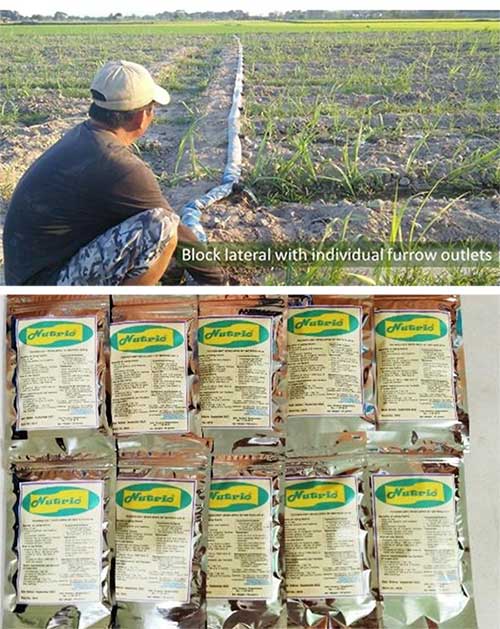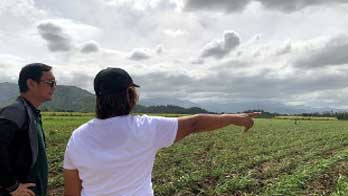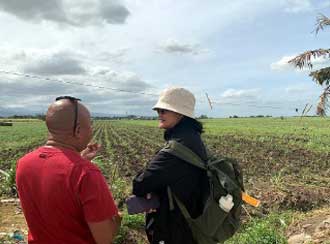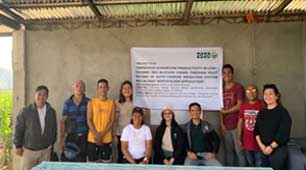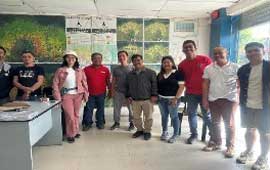A newly-implemented project starts preparing for the possible effects of the El Niño phenomenon in sugarcane production in Negros Occidental.
According to Region VI-Philippine Atmospheric Geophysical and Astronomical Services Administration (PAGASA), the province will likely experience below normal rainfall conditions or only 41 to 80% chances of rainfall. It is anticipated to happen starting February of this year.
The project involves pilot-testing of Automated Furrow Irrigation System (AFIS) and Nutrio© biofertilizer application in low-yielding block farms of the Sugar Regulatory Administration (SRA).
Developed by Central Luzon State University (CLSU), a solar-powered AFIS will be installed in the project sites. The technology is energy-efficient, less laborious, and generates water savings of about 40 to 47%.
Moreover, Nutrio®, a foliar spray biofertilizer developed by the National Institute of Molecular Biology and Biotechnology of the University of the Philippines Los Baños (UPLB-BIOTECH), will also be used in the sites. It reduces application of inorganic fertilizer by substituting 50 percent of the sugarcane nitrogen requirement. It also helps reduce the cost of fertilizer input while increasing ton cane yield by 30 percent.
Both technologies are outputs of research and development projects funded by the Philippine Council for Agriculture, Aquatic and Natural Resources Research and Development of the Department of Science and Technology (DOST-PCAARRD). These have been tested and proven effective and efficient.
CLSU, in cooperation with SRA, leads the project implementation. SRA-selected block farms are owned and managed by members of the project’s two industry partners – the Hacienda Nalipay Agrarian Reform Beneficiaries (HANARBA) and Minuro Agrarian Reform Cooperative (MARBE Inc.)
In a field monitoring and evaluation visit conducted at the sites by CLSU and DOST-PCAARRD, Project Leader Marvin N. Cinense gave updates on the farm setup and coordination activities with agencies and individual stakeholders.
According to Ms. Jocelyn Tupaz of HANARBA, it takes at least 8L of diesel to irrigate one to two hectares (ha) of land and this process requires at least one laborer to manage the process. With a production yield of less than 53 t/ha, a dry spell foreseen to occur longer than 3 months can threaten the land of reaching breakeven in profits.
CLSU’s project on pilot-testing solar-powered AFIS offers a cost-effective solution to the laborious and capital-intensive process of irrigating sugarcane plantations. Combined with the application of Nutrio® biofertilizer, the project is expected to raise the cane yield of Ms. Tupaz to more than 53%.
This two-year project is expected to be completed in 2025. It is funded by DOST through its Accelerated R&D program for Capacity Building of Research and Development Institutions and Industrial Competitiveness, Industry-level Collaborative Research and Development to Leverage Philippine Economy (ICRADLE) program. This program involves five industry partners with common problems and needs. They take part in research and development through partnership with experts in the academe and higher education institutes.
Aside from HANARBA and MINURO, the CLSU ICRADLE project also implements the project in selected sites in Luzon and Mindanao, in partnership with North Cluster Producers Cooperative, Batangas Sugar Planters Cooperative Marketing Association, and Cotabato Mill District Development Council Foundation, Inc. (Thea Mariel N. Valdeavilla and Ofelia F. Domingo, S&T Media Services)


















